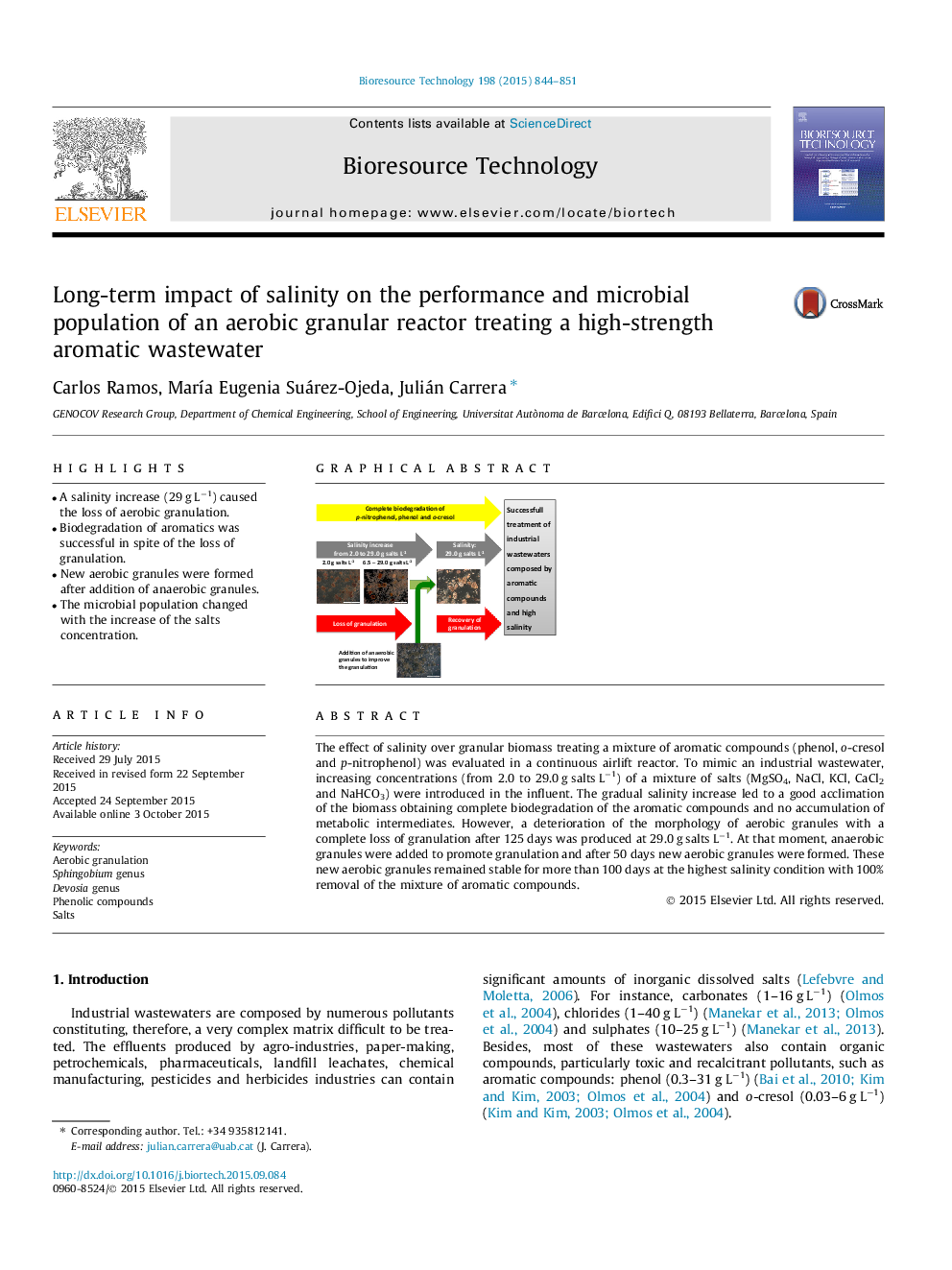| کد مقاله | کد نشریه | سال انتشار | مقاله انگلیسی | نسخه تمام متن |
|---|---|---|---|---|
| 679428 | 1459945 | 2015 | 8 صفحه PDF | دانلود رایگان |
• A salinity increase (29 g L−1) caused the loss of aerobic granulation.
• Biodegradation of aromatics was successful in spite of the loss of granulation.
• New aerobic granules were formed after addition of anaerobic granules.
• The microbial population changed with the increase of the salts concentration.
The effect of salinity over granular biomass treating a mixture of aromatic compounds (phenol, o-cresol and p-nitrophenol) was evaluated in a continuous airlift reactor. To mimic an industrial wastewater, increasing concentrations (from 2.0 to 29.0 g salts L−1) of a mixture of salts (MgSO4, NaCl, KCl, CaCl2 and NaHCO3) were introduced in the influent. The gradual salinity increase led to a good acclimation of the biomass obtaining complete biodegradation of the aromatic compounds and no accumulation of metabolic intermediates. However, a deterioration of the morphology of aerobic granules with a complete loss of granulation after 125 days was produced at 29.0 g salts L−1. At that moment, anaerobic granules were added to promote granulation and after 50 days new aerobic granules were formed. These new aerobic granules remained stable for more than 100 days at the highest salinity condition with 100% removal of the mixture of aromatic compounds.
Figure optionsDownload as PowerPoint slide
Journal: Bioresource Technology - Volume 198, December 2015, Pages 844–851
